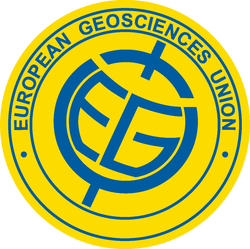
Dear Colleagues,
we would like to bring the following EGU session (Wien, April 07-12, 2013) to your attention and encourage all of you to submit an abstract:
"Earthquake Geology: methodological aspects and case studies" (TS8.2/SM2.7)
(see rationale at the end of the message)
Remind that deadline for Abstract Submission is January 9, but the deadline for Support Application is next November 30. Please pass this along to anyone who may be interested and feel free to contact us.
More information is available at: http://meetings.copernicus.org/egu2013
Thanks for your time and looking forward to meeting you in Wien.
Riccardo and Spyros
[email protected]
[email protected]
Earthquake Geology:
Geological Sciences represent a crucial perspective for investigating past earthquakes and possibly predicting (middle-long term) future ones. Indeed, many moderate to strong crustal events produce direct and permanent effects on the earth surface (i.e. morphogenic earthquakes) and therefore "earthquake geologists" can recognise, describe, measure, analyse and interpret all these linear and/or areal features from superficial-shallow investigations. Geological Sciences can investigate both single-event effects (even several years after they were formed) as well as the cumulative ones.
Geological investigations of past earthquakes is also of primary importance for seismic hazard assessment, which requires the interplay of different disciplines and expertises. For example, geological studies can provide crucial information for regions where instrumental seismic records or detailed historical accounts are not available, but that generated destructive earthquakes in the past and may generate similar events in the future. Geological approaches to the investigation of past earthquakes are fundamental to contribute to determine or to infer important parameters for seismic hazard assessment, including the maximum expected magnitude, the return period for a given magnitude and the mean slip-rate.
In this session, we welcome contributions focusing on all methodological aspects and different approaches used by the geological community to investigate active faults. Both theoretical issues and case studies describing and critically discussing any geological aspect of earthquakes and seismogenic faults are expected. We look forward to a lively and cross-disciplinary programme that will bring together a broad range of expertises to discuss on the crucial contribution of Geological Sciences to the investigation of earthquakes and to seismic hazard assessment
we would like to bring the following EGU session (Wien, April 07-12, 2013) to your attention and encourage all of you to submit an abstract:
"Earthquake Geology: methodological aspects and case studies" (TS8.2/SM2.7)
(see rationale at the end of the message)
Remind that deadline for Abstract Submission is January 9, but the deadline for Support Application is next November 30. Please pass this along to anyone who may be interested and feel free to contact us.
More information is available at: http://meetings.copernicus.org/egu2013
Thanks for your time and looking forward to meeting you in Wien.
Riccardo and Spyros
[email protected]
[email protected]
Earthquake Geology:
Geological Sciences represent a crucial perspective for investigating past earthquakes and possibly predicting (middle-long term) future ones. Indeed, many moderate to strong crustal events produce direct and permanent effects on the earth surface (i.e. morphogenic earthquakes) and therefore "earthquake geologists" can recognise, describe, measure, analyse and interpret all these linear and/or areal features from superficial-shallow investigations. Geological Sciences can investigate both single-event effects (even several years after they were formed) as well as the cumulative ones.
Geological investigations of past earthquakes is also of primary importance for seismic hazard assessment, which requires the interplay of different disciplines and expertises. For example, geological studies can provide crucial information for regions where instrumental seismic records or detailed historical accounts are not available, but that generated destructive earthquakes in the past and may generate similar events in the future. Geological approaches to the investigation of past earthquakes are fundamental to contribute to determine or to infer important parameters for seismic hazard assessment, including the maximum expected magnitude, the return period for a given magnitude and the mean slip-rate.
In this session, we welcome contributions focusing on all methodological aspects and different approaches used by the geological community to investigate active faults. Both theoretical issues and case studies describing and critically discussing any geological aspect of earthquakes and seismogenic faults are expected. We look forward to a lively and cross-disciplinary programme that will bring together a broad range of expertises to discuss on the crucial contribution of Geological Sciences to the investigation of earthquakes and to seismic hazard assessment
 RSS Feed
RSS Feed
